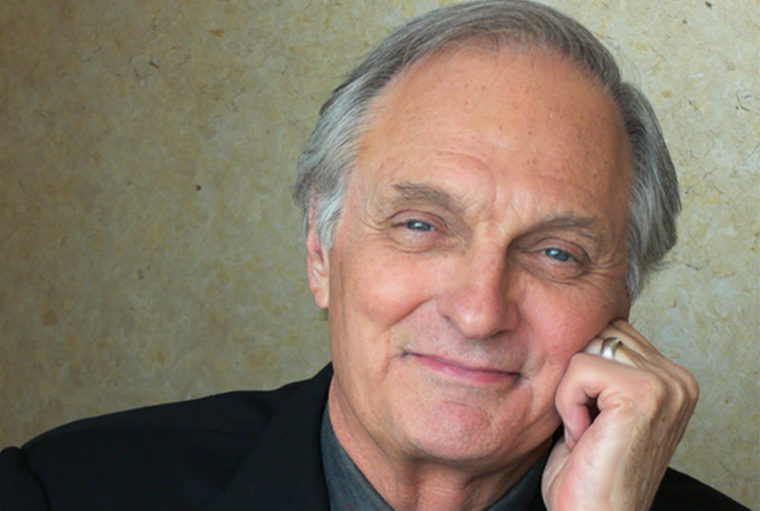Alan Alda is an award-winning actor known for his roles on the hit television shows M.A.S.H. and The West Wing. However, Alda is now more passionate about improving teaching science. He has spoken across the nation and world about his work at the Alan Alda Center for Communicating Science at Stony Brook University. I recently attended a lecture by Alda and want to share my insights from his talk in today’s post.

I’ve always loved Alan Alda. He is such a classic actor to me. He seems to really embody the character.
Given a personal health crisis and his own experience as a T.V. doctor, Alda has begun to use his celebrity to support the cause of communicating science better.
While much of his work is talking about communicating with a broader public, there are some specific lessons for anyone involved in college teaching— in the sciences and beyond.
Storytelling is a powerful way to communicate, engage the audience, and share our excitement
We learn through stories.
As someone who has made his career through entertainment, this idea comes to Alda perhaps easier than those of us in faculty careers.
When I work with faculty, I often tell them to share what got them into their disciplines and what makes them excited. Often, this curiosity translates quite effectively to students.
Teachers can engage their classes through the use of drama. At a fundamental level, drama builds on excitement, emotion, and a sense of unknown to draw a listener into a story.
Breaking course content into a series of stories with context, drama, and a narrative can increase focus and attention that can often be missing in college classes.
Teaching is about relationships
I’ve always believed that relationships are a key part of teaching.
If I have a relationship with my classes, I can not only interact with them differently, but I am able to provide assessment and feedback in more honest ways.
What is striking to me is how often a lecturing professor doesn’t seem like a real person. The lecture is impersonal, devoid of stories, and fails to bring in the students.
Alda described how when he works with scientists that they often use improv techniques. While there are many benefits of improv for instructors, one of the primary goals of improve is to develop a relationship with your partner.
In improv, you have to trust your partner and fully engage with them. You’re responsive to their words and actions.
When teaching, try to be responsive to students from their words, behaviors, and body language. Students can give you profound insights into how well your class is going. This real-time data can allow you to adjust and modify your teaching to connect with your students.
There’s a powerful lesson here for thinking about teaching. Building relationships, being a real person, and responding to our students can elevate our teaching to another level.
Don’t dumb it down
I suspect many faculty would worry that storytelling and leveraging improv strategies will dumb down course content.
Alda makes a strong argument against this point.
He said scientists often think communication is something you add on like icing on a cake. Instead, he argues that it is the cake itself.
To be a scientist (or a faculty member in any discipline I’ll add), you have to talk to other scientists. You have to talk to the public and policy makers to get funding.
No one is going to give you funding or support your work if they don’t understand what you’re doing.
As instructors, we can tell stories about our work that draw in students, but in a way that doesn’t diminish our content. I can share my excitement about the content or communicate in a way that students can relate to the material better.
This doesn’t cost me any rigor in class. Quite the opposite. By engaging students and getting their attention, I’m better able to communicate the material that I want to make sure they get from class that day.
If I give an impersonal, jargon filled, boring lecture, I have little hope of the students learning what I want them to learn.
Embedding communication in our graduate curriculum
Alan Alda is on a mission to embed communication in the teaching curriculum of science students.
He argues that this is a pretty simple and practical step to improve science knowledge, literacy, and education in our nation.
We all know that universities do a poor job of preparing graduate students to teach. In part, I believe this is because the focus is so much on research.
Alda turns this logic on its head because communicating science is part of the research process.
Helping our students communicate about the discipline has the potential to improve both teaching and research.
Don’t believe me?
Believe the doctor. Or at least the guy who played one on TV.

